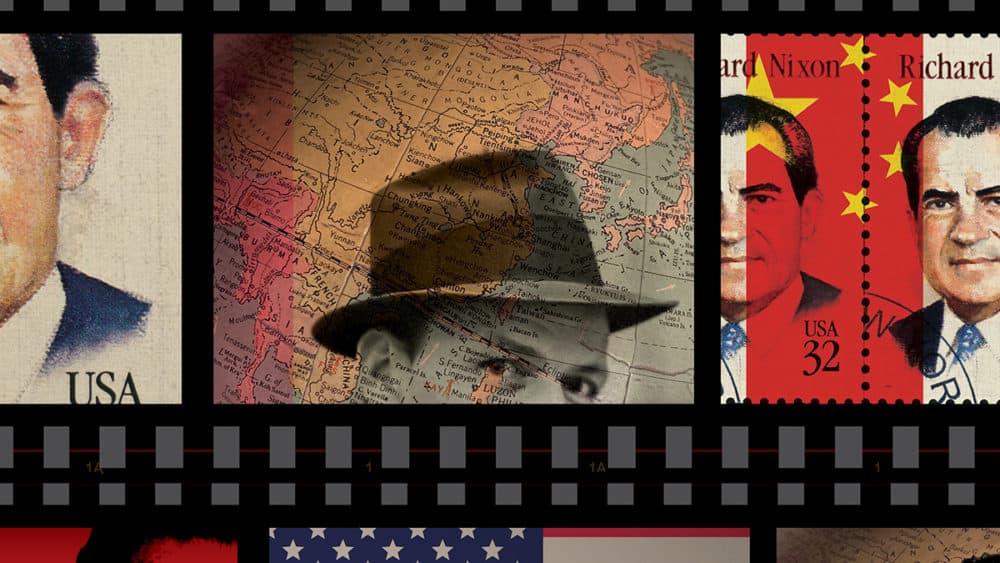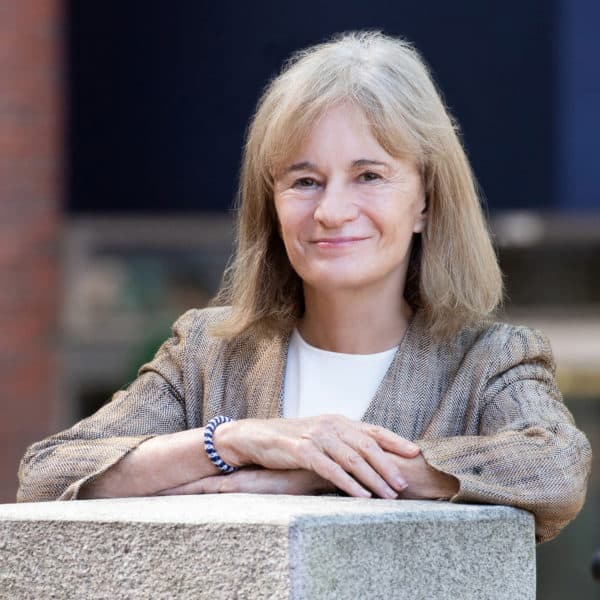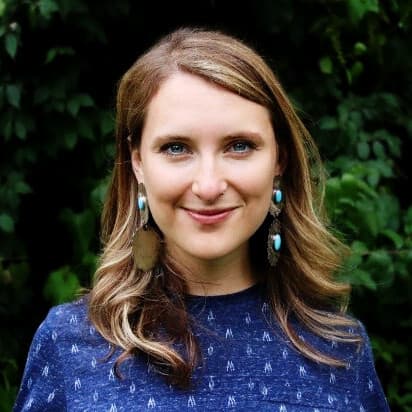Advertisement
The Great Wager
Plots and private planes: How Henry Kissinger pulled off a secret trip to China
Resume
This is Part II of The Great Wager. Click here for all five episodes.
When Jon Huntsman, Jr. was 11 years old, his father worked at the White House.
“It was a 24/7 job,” Huntsman recalls. “I had occasion to go see him, sometimes on weekends, sometimes during weekdays, because it was the only chance we had to connect.”
Huntsman would grow up to be the ambassador to Russia and China, but as a child, he was more interested in finding soda. He was on a mission to do just that when he walked into the office of Henry Kissinger, Richard Nixon’s national security advisor.
“I walked into Henry Kissinger's office and there was busy work taking place. Bags were being packed,” Huntsman says. “Dr. Kissinger said, ‘Would you mind, young man, carrying my bag out to the driveway?’ ”
As they approached Kissinger’s car, Huntsman asked him where he was going.
“Young man,” Kissinger answered, “don't tell anyone but I'm going to China.”
At 11, Huntsman couldn’t understand the import of Kissinger’s trip. Kissinger was the first American official to travel to China since the Communist Party took control two decades before.
Getting there
In order to secretly smuggle Kissinger into China, the Americans needed a friendly country to help them. They landed on Pakistan, a country congenial with both China and the United States.
For a year, the Nixon administration and China sent messages back and forth via Pakistan. But Nixon and Kissinger knew they needed an invitation to talk in person for the relationship to meaningfully move forward.
In April 1971, Nixon told Kissinger he was getting impatient. “We’re playing for very high stakes here,” Nixon said, “We have very little time left and we can’t diddle around.”
Finally, in May 1971, Nixon and Kissinger received an important letter via Pakistan inviting an American envoy to Beijing.
Kissinger was chosen to go because he and Nixon wanted very few people outside of their inner circle to know about the trip — a crucial first step in arranging a meeting between Nixon and China’s leader, Mao Zedong. But Kissinger was no China expert. He had spent most of his career at Harvard University concentrating on Europe.
He would later own up to this on a late-night television show with Dick Cavett.
“I knew nothing about China,” Kissinger said. “Not a great qualification for a secret mission but it’s absolutely true.”
To figure out his path to China via Pakistan, Kissinger called up Joseph S. Farland, a crusty former FBI agent who was serving as ambassador to Pakistan.
Kissinger ordered Farland to fly from Pakistan to Los Angeles and arranged for a private jet to take the ambassador to Palm Springs.
Being a former FBI agent, Farland tried to figure out where Kissinger got this jet. He noticed that the ashtrays had a familiar name on them: Frank Sinatra.
Kissinger greeted Farland on a Palm Springs patio, wearing short sleeves and with a drink in hand.
“I said, ‘Henry, I’ve come halfway around this damned Earth and I don’t know why,’ ”
Farland would later recall in an oral history:
“He said, ‘I want you to put me into China.’ ”
“I said, ‘I don’t think that’s very funny, Henry.’ ”
“He said, ‘It’s not funny.’ ”
However reluctantly, Farland helped Kissinger come up with a plan to sneak from Pakistan to China without alerting the press — with a flight over the Himalayas, just four and a half hours. Farland also helped Kissinger figure out a simple disguise: a fedora and sunglasses.
Farland was instructed not to tell anyone about the trip — not even his boss, the secretary of state. Kissinger and Nixon wanted the bare minimum amount of people to know.
“They were so damned secret, I don’t know whether they even talk to each other, sometimes!” Farland said.
And then, right before Kissinger was set to leave, there was a historic government leak: The Pentagon Papers, a detailed account exposing the secrets of U.S. involvement in the Vietnam War.
The leak mostly implicated prior administrations. But a government leak was just what Kissinger and Nixon feared the most.
According to people in the Oval Office, Kissinger slammed his hand down on a table.
When Nixon was told about the leak, he said, “I’d just start right at the top and fire some people. I mean whoever, whatever department it came out of, I’d fire the top guy.”
To Kissinger and Nixon, the leak suggested that members of their own government couldn’t be trusted. And they worried that foreign governments, including China, would think America couldn’t be trusted at all.
The trip
After several weeks of intense studying and plotting, Kissinger was set to go.
He told the press and other people in the White House that he was setting off on a routine tour to Asia.
When he landed in Pakistan, he feigned a stomach ache and claimed he needed a few days to recuperate — buying him the time he needed to get to China undetected.
A Pakistani diplomat drove Kissinger to the airport at 3:30 a.m. for the flight to Beijing. It was pitch dark. The diplomat didn’t even trust his own chauffeur to drive Kissinger, instead driving him personally in his teenage son’s Volkswagen Beetle with the national security adviser stuffed in the back seat.
When Kissinger’s security detail boarded the plane, there were four Chinese people in the front cabin. Not knowing where they were headed, the agents mistook them for enemies. One of the American Secret Service agents even went for his gun. But they avoided a shootout. Kissinger arrived in Beijing without incident or anyone from the media knowing.
‘The quality of childhood’
Kissinger was immediately taken with China.
“It’s one of those few experiences you have when you are an adult that has some of the quality of childhood of them, which is that everything is totally new,” he would later recall on “The Dick Cavett Show.” “And everything you saw was an experience you hadn’t had before.”
Kissinger was taken by the 600-year-old palaces and the perfectly symmetrical gardens. He was even served caviar for breakfast, he bragged to his colleagues.
At first, the Chinese were wary of Kissinger and his insistence on secrecy. Were the Americans embarrassed by the Chinese, they wondered? But Kissinger soon forged a rapport with Premier Zhou Enlai, who died a few years later from bladder cancer.
“In fact, Zhou Enlai was ideologically very hostile to us and had he lived, in the long evolution of history, in 20 years we might again find ourselves on opposite sides,” Kissinger told Dick Cavett. “At that particular moment, he was a man of extraordinary intelligence, one of the most intelligent people I’ve ever met.”
The talks went surprisingly well. Kissinger enticed the Chinese with information about the Soviets that could help them with their border struggle.
But there were sticking points — namely Taiwan, the island off mainland China that the Communist Party claims as theirs. Kissinger and Zhou agreed to put Taiwan on the backburner, though Kissinger told him what he wanted to hear. Kissinger even suggested that history would be on the side of China's claim for the island, a position completely at odds with American policy. Kissinger also got nowhere on Vietnam: The Chinese would not help Nixon end the war.
But after 17 hours, the Chinese and the Americans agreed that Mao and Nixon would meet. Kissinger sent a message home from the plane: “Eureka!”
But not everyone was going to be happy to hear the news back home.
The Pentagon brass was skeptical about the new ties with China. Nixon and Kissinger largely shut the Pentagon and the State Department out of their planning. On Kissinger’s trip home, a Navy yeoman stole notes from Kissinger’s briefcase while he was sleeping to feed to the Pentagon.
When Nixon learned of the theft, he asked, “Can I ask how in the name of God do we have a yeoman having access to documents of that type?”
The content of what the yeoman stole never became public, but it highlighted disagreement in the American government about how to deal with China.
Still, Nixon was ready to let the world in on his plan. A few days after Kissinger’s meeting with Zhou, Nixon announced on live television from a California studio that he would travel to China within the next several months.
The news goes out simultaneously in very different contexts in China and in the U.S., where Americans see the president on color TV.
To Nixon, it was a huge win. After the announcement, he splurged on a rare French wine with his staff at a Hollywood restaurant. It was the kind of coup he hoped to go down into history for, and he was uncharacteristically elated.
Five decades later, Jon Huntsman, who saw Kissinger off to China as an 11-year-old, would reflect on that moment as an adult.
“In hindsight, as I learned more about the subject matter and lived it and breathed it, all I can say is 50 years ago, Nixon decided to fundamentally ignore Napoleon's advice to let China sleep,” he says, “for when it wakes, it will astonish the world.”
But in 1971, the deal wasn’t yet sealed. The Chinese and Americans still didn’t totally trust each other. And Nixon’s trip wasn’t scheduled for many months.
There was plenty of time for the Chinese to change their minds.
Show notes
Want to know more? Here are some of the resources The Great Wager team consulted during reporting and production.
State Department memos
Oral histories
Books
- Aijazuddin, F.S. “From a Head, Through a Head, To a Head: The Secret Channel between the US and China through Pakistan.” Oxford University Press, 2000.
- Feldstein, Mark. “Poisoning the Press: Richard Nixon, Jack Anderson, and the Rise of Washington's Scandal Culture.” Farrar, Straus & Giroux, 2010.
- Hersh, Seymour M. “The Price of Power: Kissinger in the Nixon White House.” Simon and Schuster, 1984.
- Isaacson, Walter. “Kissinger: A Biography.” Simon & Schuster, 1992.
- Kissinger, Henry. “White House Years.” Simon & Schuster, 2011.
- Khan, Sultan Mohammad. “Memories and Reflections of a Pakistani Diplomat.”
- London Center for Pakistani Studies." 1997.
- Macmillan, Margaret. “Nixon and Mao: The Week That Changed The World.” Random House, 2008.
- Mann, James. “About Face: A History of America's Curious Relationship with China, from Nixon to Clinton.” Alfred A. Knopf, 2000.
- Nixon, Richard. “RN: The Memoirs of Richard Nixon.” Grosset & Dunlap, 1978.
- Pomfret, John. “The Beautiful Country and the Middle Kingdom: America and China, 1776 to Present.” Henry Holt and Co., 2016.
- Tofel, Richard. “‘A Federal Offense of the Highest Order’: The True Story of How the Joint Chiefs Spied on Nixon, and How He Covered It Up.” 2019.
- Tudda, Chris. “Cold War Turning Point. Nixon and China 1969 - 72.” Louisiana State University Press, 2012.
- Tyler, Patrick. “A Great Wall: Six Presidents and China.” Public Affairs, 2000.
- Xia, Yafeng. “Negotiating with the Enemy.” Indiana University Press, 2006.
Documentaries
- “History Declassified: Nixon in China.” National Security Archive, 2004
- “Nixon in China.” Compilation of Audiovisual Materials, Richard Nixon Presidential Library. 2012
- “Nixon’s China Game.” PBS. 2000.
- “Playing The China Card.” Brook Lapping TV Series. 1999.
- “Looking Back on 1972: The Diary of Nixon’s Visit to China.” Phoenix TV. 2012.
The Great Wager was reported by Jane Perlez and produced by Grace Tatter. Special thanks to The Belfer Center, The John F. Kennedy School of Government, Harvard University; Luz Ding, researcher; William Burr and the National Security Archive; Susan R. Johnson, Association for Diplomatic Studies and Training; Ryan Pettigrew, the Richard Nixon Presidential Library; Lucas Nichter, Texas A&M University; Roger Lewis at Ground Zero Books; Jane Perlez’s colleagues in the Beijing bureau of The New York Times; Chas Freeman; Fredrik Logevall, Harvard University; Amb. Winston Lord; Patrick Tyler, journalist and author; and author James Mann.
This project is funded in part by a grant from the Henry Luce Foundation.
The Great Wager series collage artwork is created by WBUR. Images used are from www.archives.gov, www.alamy.com and www.istock.com. Photo credits: iStock.com: mphillips007/ Ensup / bndart / traveler1116 / sinopics / andDraw / Kateywhat. alamy.com: The Color Archives / Shim Harno / 360b / INTERFOTO. National Archives: 194412 / 194759
This segment aired on February 18, 2022.

